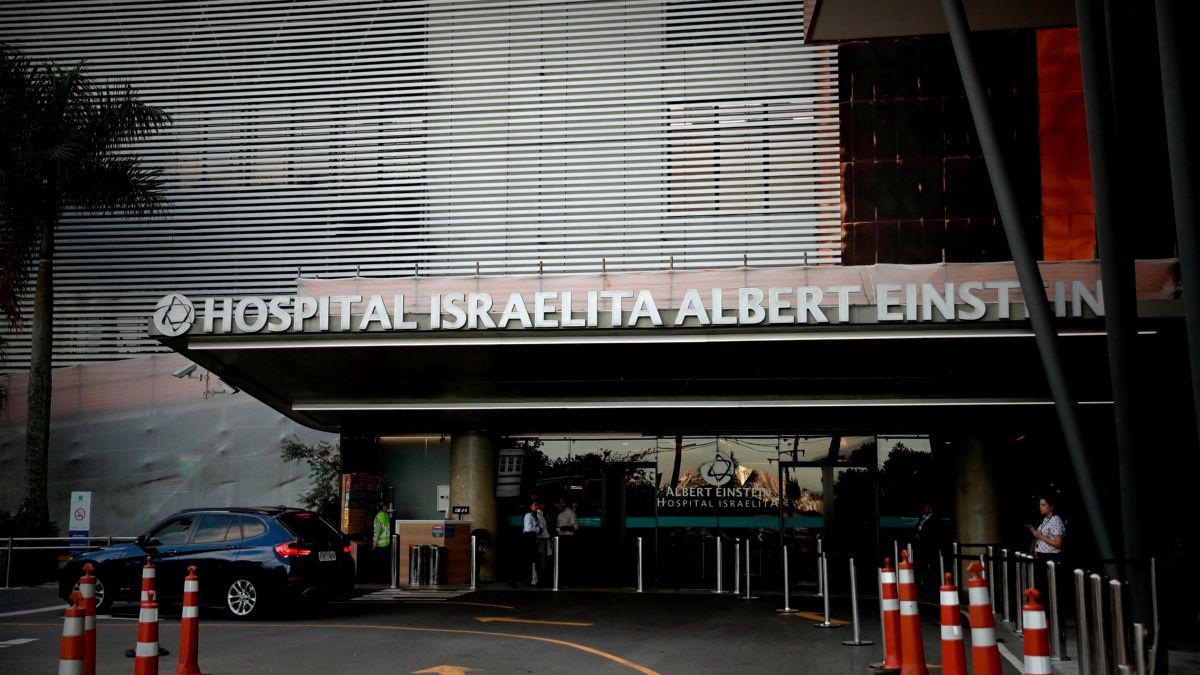RIO DE JANEIRO, BRAZIL – The Albert Einstein Israeli Hospital in São Paulo announced on Thursday, May 21st, that it had developed an unprecedented test for the novel coronavirus. The method ensures accuracy identical to RT-PCR, the most accurate test currently used, but with a higher volume of processing.

According to the hospital, the new model allows the concurrent performance of up to 1,536 samples, totaling a processing volume 16 times higher than in RT-PCR testing. The breakthrough is unprecedented in the world and was patented in the United States last week.
The test uses so-called “next-generation sequencing” technology, which analyzes small DNA fragments to identify diseases and genetic mutations. The hospital team innovated by adapting the method to also detect RNA molecules, which contain all of the genetic material in the case of some viruses. The goal is to detect the presence of SARS-CoV-2 RNA, the cause of Covid-19, in the patient.
Research with this type of methodology began in March, led by Einstein’s innovation branch and the Varstation bioinformatics startup, one of the solutions incubated at Eretz.bio, the hospital’s startups incubator.
According to Claudio Terra, Einstein’s innovation and digital transformation engineer and director, the new methodology turns Brazil into a relevant player in the worldwide testing dispute.
“We are now interested in reaching large scale agreements; we are not interested in keeping this technology in Einstein alone,” he said. The patent was confirmed last Friday, May 15th, and now the hospital staff continues to seek partnerships abroad. “We are announcing today and hope that tomorrow morning we will be talking to governments, private laboratories, to find ways to establish partnerships and increase the testing capacity,” he said.
By way of comparison, Einstein has performed 55,000 Covid-19 tests using the PCR method since the pandemic began in March. With the new test and with the existing machinery potential, 100,000 tests can be performed per month, even if no new machines are purchased.
“It’s a very encouraging breakthrough; it allows us to expedite greatly the detection of the virus,” says Carlos Gouvêa, president of the Brazilian Chamber of Laboratory Diagnostics (CBDL). The specialist points out that this technology is widely used in cancer treatment, to understand genetic mutations and select more responsive drugs for treatment. “We adapted this process to detect the coronavirus.”
In patients, the sample is collected from the mouth or nose. The sample is prepared following the protocols established by the hospital and is analyzed by Varstation.
Currently, the test results for the novel coronavirus are ready in three days, but the teams are working on reducing the time. The test is expected to be used in the hospital’s routine by early June.
How far can the tests be extended?
In recent months, the world has been the stage of a war effort in search of coronavirus tests, both rapid and PCR. Einstein’s Terra says that, in the case of the new test, it is “a new avenue being opened” because the methodology uses neither machines nor reagents, which are needed in other coronavirus tests. Consequently, there is no competition for supplies with the already existing types of tests.
Einstein’s executive states that, with the release of the test results developed in the hospital, “there will be a greater demand” for reagents used in that methodology, but that Brazil has a substantial installed potential of machines and reagents for this new test.
According to Terra, a positive point for a potential mass test using this tool is that there are several alternatives to the reagents needed in this process, which do not come from a specific supplier. These supplies are also more available now because many laboratories have cut back on other tests that use these reagents, due to the focus on fighting the coronavirus.
Nowadays, in addition to the RT-PCR, there are also serological tests, known as “rapid tests,” in which the results come out within minutes after collection of blood. They are the most widely used for mass testing. However, unlike the RT-PCR or the new Einstein test, these tests do not detect the virus’ RNA, but rather antibodies to the disease produced by the human body. Therefore, they have a higher potential for the so-called “false negative” and are not recommended during the early stage of the disease, since antibodies take approximately one week to be mass-produced by the body.
“Until now, the only way to detect its presence [of the Covid-19 virus] inside human cells was through the RT-PCR technique,” says pathologist João Renato Rebello Pinho, coordinator of Einstein’s Special Techniques Laboratory and one of the people behind the new test.
CBDL’s Gouvêa, who monitors the performance and manufacture of tests in Brazil, says there will still be limits to testing the whole population, but “the number of tests can be greatly multiplied.” “To get to other laboratories you will need the equipment, which is not that cheap and not that easy to find, particularly outside metropolitan regions,” he says. “But every breakthrough is valid; it’s another very positive prospect if it’s extended to several laboratories.”
Source: Exame

